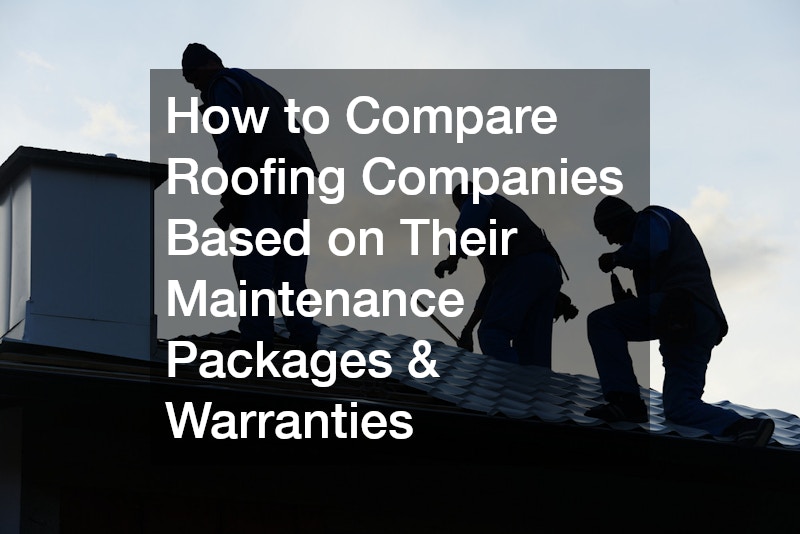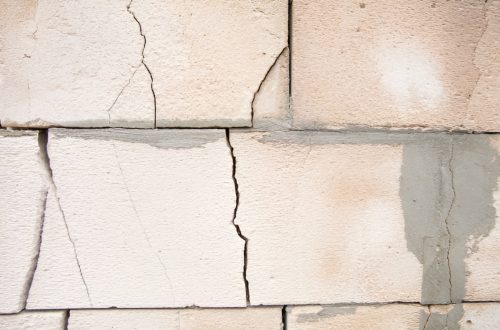
- Choosing the right roofing company is about value, maintenance, and warranties, not just the lowest price.
- Maintenance plans extend roof lifespan, prevent costly repairs, and keep warranties valid.
- Understanding the differences between manufacturer warranties and contractor workmanship warranties is essential for protecting your investment.
- Compare companies based on scope of maintenance, warranty coverage, cost, credentials, and customer service.
- Ask detailed questions and request written proposals to ensure transparency and clarity before signing a plan.
- Documented inspections and regular upkeep help safeguard both your home and finances over the long term.
- Prioritize reputable, certified, and local contractors for reliable service and faster emergency response.
Introduction: Why Comparing Roofing Companies Matters
Your roof is one of the most critical elements protecting your home from the elements. Yet, many homeowners only think about it when there’s a leak or visible damage. Knowing how to recommend a roofing company that offers maintenance plans can make a significant difference, ensuring your roof stays in top condition and potentially saving thousands of dollars over time.
Comparing roofing companies isn’t just about the lowest price. It’s about understanding maintenance packages, warranties, and service reliability. The best roofing contractors offer ongoing maintenance plans that prevent small issues from turning into major expenses, along with warranties that safeguard your investment.
This guide breaks down how to evaluate, compare, and select roofing companies that deliver long-term value through transparent maintenance services and dependable warranties.
What a Roof Maintenance Plan Usually Includes
A roof maintenance plan is a structured agreement between a homeowner and a roofing company for regular inspections, cleanings, and minor repairs. It’s similar to getting your car serviced — routine attention keeps your roof performing well year after year.
Typical Elements of a Maintenance Plan
-
Biannual or annual roof inspections: Professional checkups every 6 or 12 months help identify loose shingles, sealant wear, or early leaks before they worsen.
-
Gutter and drainage cleaning: Ensures water flows freely, preventing pooling and potential rot or mold.
-
Sealant and flashing maintenance: Keeps critical joints around chimneys, vents, and skylights watertight.
-
Minor repair coverage: Many plans include small fixes like replacing a few damaged shingles or re-sealing roof edges.
-
Detailed condition reports: A written summary after each visit, including photos and recommendations, helps track roof health.
-
Priority service in emergencies: Customers with plans often receive faster scheduling during storms or busy seasons.
Why It Matters
A well-maintained roof can extend its lifespan by 25–50%. Instead of waiting for leaks or water damage, preventive care catches early warning signs. Over a 10-year period, the cost of a maintenance plan is often far less than one major roof repair or replacement caused by neglect.
Types of Roofing Warranties
Warranties protect your roof investment — but not all warranties are equal. Understanding the types available helps you avoid costly surprises.
1. Manufacturer’s Warranty (Material Warranty)
-
Covers defects in roofing materials (like shingles or tiles) from the manufacturer.
-
Typical coverage: 20–50 years depending on the product.
-
Example: If shingles crack prematurely due to a production defect, the manufacturer may cover replacement materials (not always labor).
2. Workmanship or Contractor’s Warranty
-
Provided by the roofing company for the installation work itself.
-
Coverage duration: 1–10 years, depending on the company’s policy.
-
Covers installation errors — e.g., improper sealing or underlayment application.
3. Extended or System Warranty
-
Some manufacturers and top-tier contractors offer extended warranties covering both materials and labor, often requiring regular maintenance by certified installers.
-
May include transferable coverage, which is a selling point if you move homes.
4. Limited vs. Full Warranties
-
Limited warranty: Covers specific components under certain conditions.
-
Full warranty: Covers most components and labor, often with fewer exclusions but may come at a higher cost.
How to Compare Roofing Companies Effectively
When you start comparing roofing companies, it’s easy to feel overwhelmed. Every contractor promises “quality work,” but real value lies in the details — what’s included, what’s excluded, and how transparent they are about maintenance and warranty terms.
Below are the key comparison criteria every homeowner should use before signing an agreement.
1. Scope of Maintenance Services
Ask each company for a detailed breakdown of what’s included in their maintenance package.
| Feature | Questions to Ask | Why It Matters |
|---|---|---|
| Inspection frequency | How often do you inspect the roof? | Regular inspections catch issues early. |
| Debris removal | Do you clear gutters and roof debris? | Prevents water damage and structural wear. |
| Minor repairs | What repairs are included without extra charge? | Saves you on small service calls. |
| Condition report | Will I get a written inspection report? | Helps track roof health over time. |
2. Warranty Coverage and Transparency
Carefully compare warranty documents between companies.
| Warranty Type | What to Check | Why It’s Important |
|---|---|---|
| Material warranty | Duration, transferability, exclusions | Protects you against defective shingles. |
| Workmanship warranty | What installation errors are covered? | Labor issues are often the costliest. |
| Maintenance requirement | Is maintenance required to keep warranty valid? | Neglect can void your warranty. |
| Claim process | How do you file and how fast do they respond? | Efficient warranty claims save stress. |
Tip: Look for companies certified by manufacturers like GAF, CertainTeed, or Owens Corning, as they often offer enhanced warranties through certified contractors.
3. Cost and Value Comparison
The cheapest quote isn’t always the best. Instead, compare value for money by evaluating what’s included for the price.
Consider the following:
-
Is annual maintenance included or extra?
-
Do they charge per visit or offer a flat yearly rate?
-
Are emergency repairs discounted under the plan?
-
Does the warranty include both materials and labor?
A slightly higher upfront cost can save thousands over time if it includes strong coverage and maintenance perks.
4. Company Reputation and Credentials
Before signing, research the company’s reputation and qualifications.
Checklist:
-
Licensed and insured in your state (verify through your state’s licensing board).
-
Better Business Bureau (BBB) rating of A or higher.
-
Certified by major roofing manufacturers.
-
Positive online reviews on Google, Yelp, and Angi.
-
Local references available upon request.
Pro Tip: Local companies familiar with your region’s climate are better equipped to offer relevant maintenance advice (e.g., snow load prevention in the Midwest, storm prep in Florida).
5. Communication and Customer Service
Roofing is a long-term relationship — choose a company that values communication.
Look for signs of good communication:
-
They provide detailed written proposals, not vague estimates.
-
They explain warranty terms clearly without jargon.
-
They respond promptly to inquiries.
-
They have a dedicated contact for maintenance scheduling.
A company’s communication style often reflects how they’ll handle future service requests or warranty claims.
Case Example: Comparing Two Roofing Companies
Let’s look at a simplified example of how two companies might differ.
| Category | Company A | Company B |
|---|---|---|
| Annual cost | $400 | $250 |
| Inspection frequency | Twice per year | Once per year |
| Minor repairs included | Up to $150 | Not included |
| Warranty | 10-year workmanship | 3-year workmanship |
| Material warranty | 30-year shingles (transferable) | 25-year shingles (non-transferable) |
| Report provided | Yes, with photos | No |
| Emergency service | Priority response | Regular scheduling |
Result:
Even though Company A costs more, it provides double the inspections, better warranty coverage, and faster service. For long-term homeowners, Company A delivers far better value.
Questions to Ask Before Signing a Maintenance Agreement
Before committing, always interview roofing companies with focused questions.
Here’s a list to help you evaluate their transparency and reliability:
-
What exactly is included in your maintenance plan?
-
Are inspections conducted by certified professionals or subcontractors?
-
How often will I receive written reports or photos?
-
What types of repairs are excluded from the plan?
-
How does my maintenance plan interact with my roof warranty?
-
Is emergency service included or billed separately?
-
Can I transfer my plan if I sell my home?
-
What voids my warranty coverage?
-
How quickly can you respond after severe weather?
-
Are there any hidden fees or renewal costs?
These questions help reveal which companies are transparent and customer-oriented.
How Roof Maintenance Plans Save Homeowners Money
Regular maintenance might seem like an added cost, but it’s actually one of the smartest financial decisions a homeowner can make.
Cost Comparison Example
| Scenario | Maintenance Plan | No Plan |
|---|---|---|
| Annual cost | $400 | $0 |
| Major leak repair (after 3 years) | Prevented | $2,500 |
| Gutter replacement (after 5 years) | Avoided | $800 |
| Roof lifespan | +5–10 years | Reduced |
| Net savings over 10 years | ~$4,000 | $0 |
Regular maintenance helps homeowners avoid costly emergencies and maintain higher resale value, as a well-documented maintenance history appeals to potential buyers.
Tips for Choosing the Right Roofing Company in Your Area
1. Compare at Least Three Quotes
Get at least three written estimates. Compare not just price, but also:
-
Scope of maintenance and warranty coverage
-
Company credentials
-
Inspection frequency and response time
2. Verify Their Credentials
Ensure the contractor is licensed, insured, and bonded. Ask for proof of:
-
General liability insurance
-
Workers’ compensation coverage
-
Manufacturer certifications
3. Read the Fine Print
Warranties often exclude “acts of God” or neglect. Read carefully for:
-
Wind speed limits (e.g., not covered above 60 mph)
-
Algae resistance terms
-
Maintenance requirements
4. Ask for References
A reputable company should gladly share contacts of past clients. Follow up with a few and ask:
-
Did they perform maintenance on schedule?
-
How responsive are they to warranty claims?
-
Were there any hidden costs?
5. Evaluate Professionalism
-
Branded trucks and uniforms indicate established operations.
-
Well-documented proposals reflect attention to detail.
-
Membership in trade associations like the National Roofing Contractors Association (NRCA) adds credibility.
Common Roof Problems Prevented by Regular Maintenance
Homeowners often underestimate how many issues can be prevented by simple, consistent upkeep.
Preventable Issues:
-
Leaks from flashing failure — Regular inspection seals vulnerable joints.
-
Moss and algae growth — Cleaning prevents decay and shingle discoloration.
-
Blocked gutters — Avoids water pooling and foundation damage.
-
Shingle granule loss — Early detection can prevent complete roof replacement.
-
Storm damage — Post-storm inspections identify hidden structural weaknesses.
Preventive maintenance reduces repair frequency, protects your home’s interior, and keeps your warranty valid.
The Long-Term Value of Combining Maintenance and Warranty
The best protection for your roof comes from combining a comprehensive maintenance plan with a strong warranty package. Maintenance keeps your roof in peak condition; warranties cover you when things go wrong unexpectedly.
Together, they provide:
-
Consistent oversight by professionals.
-
Protection from both workmanship and material failures.
-
Better resale appeal with transferrable warranties.
-
Long-term cost control through predictable maintenance fees.
When these two elements work hand in hand, your roof becomes less of a liability and more of a managed investment.
Conclusion
Comparing roofing companies based on maintenance packages and warranties isn’t about finding the cheapest quote — it’s about securing peace of mind and long-term value.
The right roofing company will:
-
Offer transparent, clearly defined maintenance services.
-
Provide robust warranty options that protect your investment.
-
Maintain open communication and consistent documentation.
-
Stand behind their workmanship with pride and reliability.
When homeowners take time to evaluate maintenance inclusions, warranty terms, and contractor reputation, they safeguard both their home and their finances for decades to come. According to the National Roofing Contractors Association (NRCA), regular maintenance and professional inspections are key to extending a roof’s lifespan and ensuring warranty compliance. Additionally, the Federal Trade Commission (FTC) recommends verifying contractor credentials and understanding warranty details before signing any service agreement.
Next step:
Start by shortlisting three reputable local roofing contractors. Request detailed maintenance and warranty proposals from each, compare them side by side, and choose the one that provides the best balance of quality, transparency, and long-term support.
FAQs
Q1: How often should a roof be inspected under a maintenance plan?
Most roofing experts recommend twice yearly inspections — once in spring and once in fall — plus additional checks after severe storms.
Q2: Does roof maintenance really extend the roof’s lifespan?
Yes. Regular maintenance can extend a roof’s lifespan by 5–10 years, depending on material type and local climate.
Q3: Are maintenance plans required to keep warranties valid?
Many premium warranties require proof of regular maintenance. Skipping inspections can void your warranty coverage.
Q4: What’s the difference between a contractor’s and manufacturer’s warranty?
A contractor’s warranty covers installation errors, while a manufacturer’s warranty covers material defects. The best protection combines both.
Q5: Should I choose a local or national roofing company?
Local companies often understand your region’s weather challenges better and provide faster service, though national brands may offer stronger warranty partnerships.







